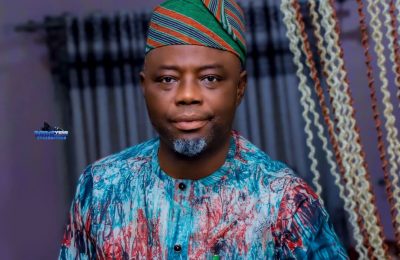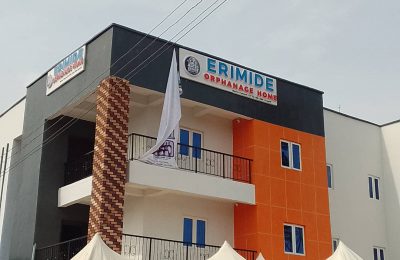

A week after the Independent National Electoral Commission (INEC) announced that there were 93. 5 million prospective voters in the coming general election, leading candidates for the presidential poll have reviewed part of their game plans on how to secure the vital majority votes in the geopolitical zones. The review is largely in response to the huge volumes of potential votes in a number of states in the geopolitical zones, voting patterns in past elections. To win, a candidate is required to have the majority of votes cast, and in at least 25 percent of the votes in 24 or more of the 36 states.
Therefore, camps of four leading presidential candidates: Alhaji Atiku Abubakar of the Peoples Democratic Party (PDP); Senator Bola Tinubu (All Progressives congress); Mr Peter Obi (Labour Party (LP) and Senator Rabiu Musa Kwankwaso of the New Nigeria Peoples Party (NNPP) are involved in deft moves to gain a superioradvantage in the buildup to the election.

At least 22 states cutting across the six geopolitical zones form epic centre of the battle to sway the huge number of prospective voters to determine who becomes president after the February 25 ballot.
The states, which cut across the geopolitical zones, include Lagos, Kano, Kaduna, Katsina, Borno, Oyo, Delta, Plateau, Benue, Ogun, Osun, Kebbi, Kogi, Niger, Sokoto, ZamfaraAbia, Anambra, Bauchi and Adamawa, Ondo and Enugu, with registered number of voters ranging between 1. 9 million and five million registered voters in each.
The candidates and their handlers are said to have paid a lot of attention to Kano, Lagos, Oyo, Delta, Katsina and Ogunstates because of the antecedents of voters in those states in the past.
The cumulative number of registered voters, coupled with the constitutional requirements on spread has made the contest for those states more passionate and demanding for all the vested interests.
Last week, INEC said the total number of eligible voters has gone up by 9,464,924, that is, 11.3 per cent from the 84,004,084 recorded in the 2019 general election to 93,469,008 voters in 2023. The new figure consists of 49,054,162 or 52.5 per cent male, with the rest 44,414,846 or 47.5 per cent consisting female voters. According to the overall figure, 37,060,399 or 39.65 per cent of voters fall within the ages of 18 and 34; while 33,413,591 or 35.75 per cent are middle-aged persons of between 35 and 49 years. A total of 17,700,270 or 18.94 per cent are elderly voters between the ages of 50 and 69, while the remaining 5,294,748 or 5.66 per cent are senior citizens above 70 years.
More instructive is the spread of the entire number of voters across the six zones, with the North-West having the highest number of registered voters of 22,255,562, as against the 20.15m voters it had in 2019. The South-West, which in 2019 had 16,292,212 registered voters, it gained a total of 1,666,754 new registered voters to the 17, 958, 966 voters in 2019 to come second, while the North-Central, which had 13,366,070 registered voters in 2019, has 15,363,731 ahead the coming elections.
The South-South has 14,440,714 registered voters, as against the figure of 12,841,279 registered voters in 2019. On the other hand, the North-East currently has 12,542,429 up from 11,289, 293 voters it had in 2019 while the South-East has 10,907,606 up from 10,057,130 registered voters it had in 2019.
A further analysis of the entire registered voters for the election revealed thatLagos has the highest number of registered voters with 7,060,195, followed by Kano with 5,921,370 and Kaduna, 4,335,208. Others include Abia (2,120,808); Adamawa (2,196,566); Akwa-Ibom(2,357,418); Anambra (2,656,437); Bauchi (2,749,268); Bayelsa(1,056,862); Benue (2,777,727); Borno (2,513,281); Cross River (1,766,466); Delta, (3,221,697); Ebonyi (1,597,646); Edo (2,501,081); Ekiti(987,647); Enugu ( 2,112,793); FCT (1,570,307); Gombe (1,575,794) and Imo with 2,419,922 registered voters.
Other states are Jigawa (2,351,298); Katsina (3,516,719); Kebbi ( 2,032,041); Kogi (1,932,654); Kwara (1,695,927); Nasarawa (1,899,244); Niger (2,698,344); Ogun (2,688,305); Ondo (1,991,344); Osun (1,954,800); Oyo (3,276,675); Plateau (2,789,528); Rivers (3,537,190); Sokoto (2,172,056); Taraba ( 2,022,374); Yobe (,485,146) and Zamfara, which has 1,926,870 registered voters.
At least three of the zones are considered by many as potential battle ground going by the individual base of threecandidates, voters’behaviour over time, the huge number of registered voters in the three zones and the pedigree of the backers of the candidates. Pundits envisage an epic contest between Atiku and Tinubu in Katsina State, the home state of President Buhari; as well as in Osun, Kwara, Ekiti, Imo, Kogi, Zamfara states where both PDP and APC either have always displayed uncanny rivalry during crucial elections. Also, Kano constitutes another state, where three candidates and their parties are involved in plots and counterplots to gain superiority.It is the base of the candidate of NNPP (Kwankwanso), with the sitting governor facing perhaps the greatest in his political career because of the welter of opposition from his hitherto political allies and former governors of the state. His party, APC is confronted on all fronts by NNPP and PDP
Recall that in 2015, Candidate MuhammaduBuhari got 12,374,890 votes from the three zones in the North: North-East, North-West and the North-Central. In the February 23, 2019 presidential poll, then incumbent President Muhammadu Buhari of the All Progressives Congress (APC) scored 15,191,847 votes, winning in 19 states, whereas the candidate of the Peoples Democratic Party PDP), Alhaji Atiku Abubakar secured 10,782, 007 votes and won 17 states and Abuja. Thus, despite more than five million rise in the number of registered voters in the area, the president only received 11,700,033 votes from the entire North.
Nonetheless, he was the darling of his zone, the North-West. So, in the 2015 election, he scored 7,115,199 as against the 1,339,709 votes that the then President Goodluck Jonathan secured. And for the 2019 election, the zone had 20,158,100 registered voters, making it the highest among the other six zones in the country. But Buhari, who is not on the ballot for the coming election, only polled mere 198,248 votes in the South-East in 2015, just as he scored 418,590 votes in the South-South, where Jonathan polled 4,714,725 votes. Of course, Buhari was able to secure 2,433,193, while Jonathan polled 1,821,416 votes in the South-West in 2015. At the weekend, the leading presidential candidates: Alhaji Atiku; Bola Tinubu (APC), Peter Obi of the Labour Party (LP), Rabiu Musa Kwankwaso of the New Nigeria Peoples Party (NNPP) intensified electioneering in the North-Central, South-West and other zones. Atiku is expected to take his campaign to Oyo State on Thursday.
New dynamics
From 2015 when the APC came to power, there has been more obvious changes in the politics of all the six geopolitical zones from 2015 till date. Some factors have given way to new dynamics, especially due to realignment and new alliances among key politicians and parties. Defections, ethno-religious sentiments and political convenience cum exigency have alternated the hitherto configurations. These issues are dictating the plots of the major parties and their candidates against the backdrop of the number of prospective voters across the zones with the general election just 41 days away.
With the North-West and the South-West zones coming first and second among the zones with the number of voters expected to exercise their franchise on February 25 for the presidency, the stakes have become higher. While some party faithful fret over the figure of prospective voters in some zones due to the implication for their candidates, others consider the release of the figures as timely as it affords them to know where they need to work hard and plot against perceived core rivals in the elections. They hope to latch on the opportunity arising from the decision of INEC to extend the collection of PVCs from January 15 to 29, explore the demography of the entire figure by prodding their foot soldiers of candidates to rally voters, especially in states with large numbers of cards awaiting collection.
For stakeholders under the Inter-party Advisory Committee (IPAC), the 2023 poll is indeed a different election in Nigeria’s history because of the Electoral Act 2022. On his part, chairman, the Transition Monitoring Group, Auwal Rafsanjani, said the demography of the voters is encouraging because it showed increased women participation in politics.
Spokesman for the NNPP presidential, Ladipo Johnson told the Nigerian Tribune that the party was confident that his principal would triumph at the poll. He said NNPP had since stepped up campaigns to garner more support for its presidential candidate in his North-West base and other areas where he has got more strength. “The voter registration figures are encouraging. They show that a lot of people in the country are eager to participate in the elections. The breakdown is also encouraging, especially with the percent of the youths that have registered.
“Looking at the geopolitical registration, we are quite confident. It shows that registration was very high in the North-West, which is the base of our presidential candidate, Rabiu Musa Kwankwaso and in other places where we have more strengths than the other candidates. So, we are looking forward to the elections. We are campaigning; we are going round states down to local governments and villages, as well as wards at times, and we believe that this strategy will bring us the votes,” Johnson added.
For Dr Victor Ashaolu, the National Secretary and the Regional Coordinator (South-West) of Atiku Campaign Group Nigeria/Diaspora (ACGND), the breakdown of the voting population, particularly in terms of zonal configuration tickles the camp of Atiku. According to him, “With the figures recently rolled out by the INEC, one can safely say that our candidate, Alhaji Atiku Abubakar, is upbeat about the election which is very much around the corner. We have undertaken a critical analysis of the whole process even long before INEC released these figures. For us in the PDP and our candidate, Alhaji Atiku, nothing has changed our resolve of coasting home to victory. A cursory look at the figures shows we shall lead comfortably at the end of the polls. The permutation is simple and it’s never a smokescreen encased in self-delusion. We are sure of what we are saying. The APC and its candidate shall kiss the dust.”
On what the varying figures spread PDP and Atiku, he said: “These figures from the nation geopolitical zones are largely populated by our party supporters and admirers. These people are more than ready to ensure the emergence of Atiku as the next president of Nigeria. So in a nutshell, these figures portend and represent the collective will of Nigerians who are tired of APC’s misrule in Nigeria; it represents hope for millions of Nigerians who are eagerly waiting in the wings to throw out the APC through their votes come February 25, this year. It will be for the liberation of the people from the shackles and rudderless administration of the APC.
“This is because our people have had enough of excruciating pains in the hands of the APC government. Prices of goods and services have become out of reach of the common man; the economy is in a terrible shape; petroleum has become gold and sold at unbearable prices, leading to a spiral effect on everything; security is a challenge. Simply, our people are just tired of APC. At times like this, the only person that fits the bill is Alhaji Atiku Abubakar because of his experience and as an individual who has proven his mettle.”








